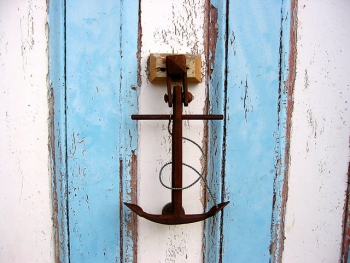He'd pulled up a chair at my office desk to view the computer screen. The man was at my agency to make sure I was doing my job--there to inspect spreadsheets and documentation--to ensure all my ducks were in a row. I had dressed for the part--a black business suit, the jacket cuffs rolled up to display leopard print accents. I wore Bandolino leather pumps. I had prepared for the site visit, my emotional notes tranquil and relaxed, my mind alert, sharpened. I had braced myself for the inspector's feedback as well--anticipating he would say there was much to improve. My numbers were down on persons I'd tested for HIV and Hepatitis C, and I'd not been able to complete as many education groups as I'd projected for the year. I sensed the inspector would gently exhort me to keep increasing numbers, leaving me with that wearying thought, "You'll never do enough." But after the examiner's perusal of my work, his response astonished me.
The middle-aged man looked at me directly, and I heard him swallow before he spoke. I observed his gray cashmere sweater vest, a black tie emblazoned with minuscule red ribbons, the symbol for fighting HIV/AIDS, peering from his collar. "Priscilla, you're an anchor," he began. "When I think of someone committed to the cause of preventing HIV, you're the person who comes to mind in Charleston. You are steady and loyal. Your work is solid. I know you've had a struggle over this last year, what with your colleague dying and leaving you to keep on going solo. Well done."
No one had ever described me as an "anchor." When the man provided this descriptor, I did not feel pride, but rather puzzlement. Most days at work, there can be such chaos, I am literally attempting to survive. With the rise in opioid use and more persons injecting drugs, increasingly I'm breaking the news to individuals that they have positive results. And these men and women are vulnerable and needy. Often when they come to my office for testing, the complexity of their lives is overwhelming, and I merely act as a presence who sits with them in their loneliness and pain, answers and solutions beyond me.
I asked God, "What are you attempting to tell me through this man's definition of me?" I sensed He said, "You are an anchor, because you are anchored in me. And when you are tethered to me, then you are an anchor to others. Remember, too, that my yoke is easy, my burden light." And then I imagined a scenario something like this: Each morning I rise. I often feel anxious about the day--the tasks I need to complete, the people who weave in and out of my life doing the work I do, the feelings of imbalance and helplessness I experience at times--a restive sea. And it's each morning that I make a decision. Do I continue on unmoored, trusting in my own efforts, or do I throw my anchor overboard, allowing its sharp hooks to leash me to the solidity of God's mercy--His wisdom? The act of tossing an anchor over my life's ship is linked to Christ's reminder to me of the lightness of His burden. My anchor is featherweight. Leave me here.

